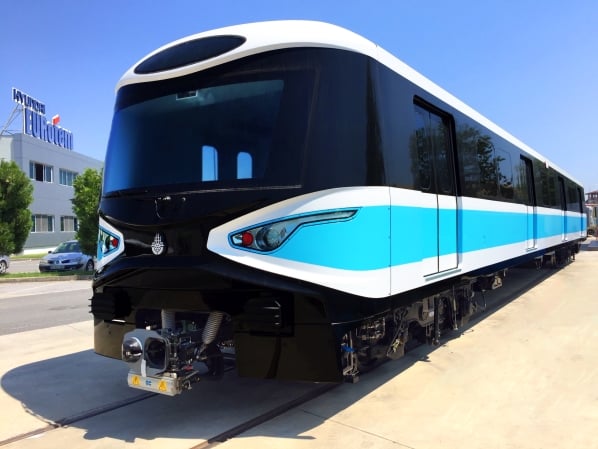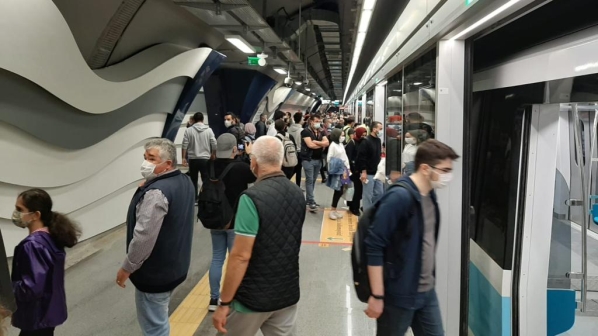The section, the first phase of the Kabataş - Esenyurt line on the European side of Istanbul, was opened following approval from Istanbul mayor, Mr Ekrem Imamoğlu. However, the full opening ceremony was delayed after Imamoğlu tested positive for Covid-19. Metro Istanbul general manager, Mr Özgür Soy, utilities provider İSKİ general manager, Mr Raif Mermutlu, and chairman advisor, Mr Ertan Yiğit, attended an informal opening ceremony at the control centre in Tekstilkent instead.
Line M7 is expected to have capacity for up to 700,000 passengers a day when fully operational, although this has been reduced to between 100,000 and 150,000 during the Covid-19 pandemic. Travel on the line will be free for the first 10 days.
The line has 15 stations and passes through six districts, with a catchment of three million residents. The stations and trains are designed to be 100% accessible for passengers with reduced mobility, with further improvements made following a test run with affected passengers.
Services will operate at a headway of 7min 30s between 06.00 and 06.45 and 22.00 and 00.00, increasing to six minutes between 06.45 and 22.00.
The opening of the full line to Kabataş has been delayed due to archaeological findings along the route.
Driverless fleet

Services are provided with driverless trains supplied by Hyundai Rotem under a Won 156bn ($US 137.6m) contract awarded in 2017 for 30 four-car trains.
Metro Istanbul will operate 20 trains, which have an operating speed of 80km/h, on Line M7, while the other 10 are due to operate on Line M8 linking Dudullu with Bostanci when it opens next year.
The fleet features Hyundai Rotem’s Zero Speed regenerative braking technology, which provides a constant deceleration rate to allow the train to stop at an exact spot. Hyundai Rotem says the technology also improves ride comfort and energy efficiency while reducing braking noise and brake pad wear.
For detailed data on metro projects around the world, subscribe to IRJ Pro.

